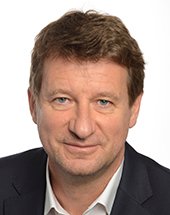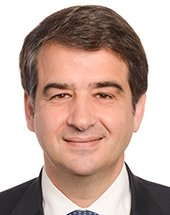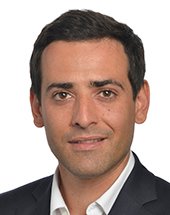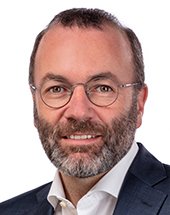Meeting Summary · 19 Jan 2022 · Council and Commission statements - Presentation of the programme of activities of the French Presidency · Source:
OPP Meeting Summary: EP Plenary - Council and Commission statements - Presentation of the programme of activities of the French Presidency (19 January 2022)
A summary of the Council and Commission statements is now available.
Mr Emmanuel Macron, President of France
View the recording of the speech
- EU integration was based on democracy, progress and peace. However, these 3 aspects were currently under threat;
- the French Presidency would aim at promoting EU democratic values;
- he noted issues concerning democracy and the rule of law in the EU;
- the management of the COVID-19 pandemic in the EU was successful due to its democratic system. In particular, he referred to the freedom of the press, academic research and innovation;
- it was essential to protect liberal democracy and foreign interference in elections;
- he stressed the importance of strengthening and respecting the rule of law. He raised the issue of authoritarian regimes undermining the EU's sovereignity;
- the French Presidency would aim at safeguarding the rule of law in the EU;
- it was untrue that the rule of law was an "invention from Brussels". He affirmed that it was the result of the EU's shared and common history;
- the EU of Charter of Fundamental Rights should also cover the environment and recognise the right to abortion;
- it was vital to give a new impetus to the rule of law in the EU;
- solidarity was a fundamental EU value. This was demonstrated by the fact that the EU was the largest exporter of COVID-19 vaccines;
- it was essential to guarantee better-paid and quality jobs, ensure decent minimum wages, reduce gender pay gaps, introduce new rights for digital platform workers, include women in governance boards, and fight against all forms of discrimination;
- although cultural differences persisted across the EU, to be European meant to appreciate the EU's uniqueness and history. He called for respecting different cultures and identities;
- the EU should become a cultural and eductional power;
- EU progress had been undermined in recent years. As examples, he referred to growing inequality, de-industrialisation, climate and digital challenges;
- he highlighted the importance of addressing climate change, adding that the EU's 2050 climate-neutrality target was the most ambitious in the world;
- it was essential to invest in new technologies such as hydrogen and batteries;
- the Commission had presented several climate-related proposals and it was necessary to move forward with them;
- he highlighted the importance of measures such as the Carbon Border Adjustment Mechanism (CBAM) and called for mirror sustainability clauses in trade agreements;
- he underlined that the EU should approve the Deforestation Regulation;
- it was essential to protect biodiversity and oceans. He emphasised that the EU had strong initiatives to present in the upcoming World Ocean Summit such as the Communication on international ocean governance;
- it was necessary to create a Digital Single Market in order to create flagship projects and invest in new technologies;
- the EU should engage with stakeholders in the digital sector to safeguard citizen's rights, tackle hate speech and divisions;
- he emphasised the importance of the Digital Services Act (DSA) and the Digital Markets Act (DMA);
- it was necessary to economically protect smaller digital stakeholders from the "digital champions" (i.e., larger digital companies)
- new regulations concerning hate speech and manipulation were needed;
- the EU should be able to respond to cyberattacks, terrorist attacks and illegal migration;
- the French Presidency would aim at reforming the Schengen Area and protecting the EU's external borders. On the latter, he favoured the creation of an intergovernmental rapid intervention force;
- referring to illegal migration, it was important to build partnerships with countries of origin and transit to stop traffickers;
- the EU should be able to assess future security challenges and should not depend on the choices of other countries;
- he favoured the creation of an EU defence industry;
- tensions were escalating in the EU's external borders;
- the EU should assess its neighbourhood policy and its role in the world;
- the EU should strengthen its partnership with Africa. An EU-Africa Summit would be held in February in order to recast the EU's partnership and relaunch a new cooperation agenda with Africa. On this matter, he deemed EU-Africa economic, financial, health, climate and education cooperation as vital. He added that security risks in the Sahel should also be addressed;
- the EU should also focus on the Western Balkans and give them a clear plan for accessing the EU. However, it was necessary to first revise the EU's accession framework to facilitate procedures;
- the Conference on the Future of Europe should be followed up by a Conference on the Western Balkans;
- trust with the UK had to be rebuilt. He emphasised that the agreements entered into with the UK had to be respected, especially regarding fishing rights and Northern Ireland;
- the EU needed 'strategic thinking', especially in EU-Russia relations. He favoured dialoguing with Russia but being assertive as regards manipulation and foreign interference;
- France would work with Germany in the context of the Normandy Format to find a solution to the conflict in Ukraine;
- the EU should work with NATO and other allies to draft a new proposal concerning Russia;
- he looked forward to cooperating with the Parliament on key legislative files over the next 6 months.
Mr Maroš Šefčovič, Commissioner for Interinstitutional Relations and Foresight
- the French Presidency begun in an agitated geopolitical context;
- he rejected the use of force against countries (i.e., in the context of the Russia-Ukraine conflict). He affirmed that the EU was ready to take action if necessary;
- further military actions against Ukraine would have major consequences for Russia;
- he welcomed US-NATO-Russia talks. The Commission remained in close contact with the US;
- he highlighted the importance of the Strategic Compass and Defence Strategy to tackle future security challenges;
- the Commission looked forward to the upcoming EU-Africa Summit;
- he welcomed France's focus on the Western Balkans, adding that it should be at the top of the EU's agenda;
- trust should be rebuilt with the UK. This would happen if the EU-UK agreements were complied with;
- the world was becoming more unpredictable;
- despite the COVID-19 pandemic, the EU had set the path for economic reform and a more sustainable way of living. In this regard, he underlined the importance of NextGenerationEU;
- because of NextGenerationEU, growth in the EU had increased by 1.5% more than what would have grown with national recovery plans alone;
- the EU's growth model should guarantee economic, political and technological sovereignty;
- technological centres should be brought back to Europe. He stressed that semiconductors should be manufactured in the EU. This was the objective of the European Chips Act;
- he welcomed the fact that the French Presidency would focus on supply chains;
- the DMA and DSA were the pillars of the EU's digital strategy;
- fair competition for SMEs in the digital sector should be ensured;
- the Commission would work with the French Presidency to foster sustainable growth.
Manfred Weber (EPP, Germany)
- he believed that the EU would be in good hands during the next 6 months;
- many priorities of the EPP group were covered by the French Presidency's programme. As an example, he referred to the French Presidency's plan to organise a conference on cancer;
- the EU needed actions instead of words;
- he casted doubts on whether the EU was more sovereign and autonomous than before;
- in his view, presentations from incoming Council Presidencies were becoming a routine and did not deliver concrete action. In this regard, he regretted the fact that the EU had not been able to set a common stance against Russia over the last 5 years;
- he stressed that Nord Stream 2 should be stopped, especially given Russia's actions in Ukraine;
- he favoured removing unanimous voting on foreign affairs issues in the Council;
- he regretted the fact that Article 7 of the TEU (concerning the rule of law mechanism) was not being sufficiently used in the Council;
- the Western democracies were divided: cities against rural areas, younger generations against older generations, vaccinated against unvaccinated. Thus, it was necessary to assess how to keep societies together;
- energy poverty was unacceptable for the EPP group. Higher energy prices contributed to rising inflation levels and this could lead to the rise of populist movements that would jeopardise the EU's green transition;
- he welcomed the French Presidency's ambition and encouraged them to bring actions.
Iratxe García Pérez (S&D, Spain)
- the EU should be powerful in the world and able to make its own choices;
- the EU would only be powerful in the world if it eradicated poverty and inequality;
- a social Europe was needed;
- she stressed the importance of key files related to minimum wages, platform workers, and the Social Climate Fund;
- it was necessary to move forward with anti-discrimination and gender pay gap rules;
- the rule of law conditionality mechanism should be used. In this regard, she emphasised that the Hungarian and Polish Recovery Plans should not be approved until they complied with the rulings from the EU Court of Justice;
- although she was aware of the national circumstances of France and Germany, she stressed that the Commission's taxonomy proposal on gas and nuclear should not weaken the EU's leadership as regards renewable energy;
- she called for reforming the fiscal rules;
- the EU should enhance cooperation on defence;
- she highlighted the importance of the EU Pact on Migration and Asylum.
Stéphane Séjourné (RE, France)
- thanks to the EU's unity and cooperation:
- the EU was the most vaccinated continent in the world;
- a recovery plan of historic dimensions was introduced for addressing the challenges posed by the COVID-19 pandemic;
- the EU would achieve climate neutrality by 2050;
- it was essential to strengthen the EU's sovereignity and the rule of law;
- the Renew Europe group looked forward to cooperating with the French Presidency on key legislative files. In particular, he mentioned the DSA, DMA, CBAM, minimum wages and fiscal rules;
- he encouraged the French Presidency to support the Simon Veil Pact on gender equality;
- he called for more focus on the youth and for the creation of a platform to help EU citizens to start a business or participate in trainings.
Yannick Jadot (Greens/EFA, France)
- he congratulated President Macron for his speech. However, he believed that President Macron's actions as President had been insufficient;
- climate change was a major global challenge that had to be addressed. Nonetheless, climate change also presented opportunities for the EU to innovate and create good quality jobs;
- he criticised President Macron for choosing "the same path as Poland and Hungary" in terms of energy sources (i.e., the use of gas and nuclear);
- he stated that President Macron would be remembered as the President who did not act to address climate change;
- he stressed that President Macron liked to procastinate as in the movie 'Don't look up';
- he welcomed initiatives from the public to tackle climate change;
- he recalled that almost a year ago, President Macron was celebrating the conclusion of the Comprehensive Agreement on Investment (CAI) with China although the Chinese government was comitting genocide against the Uyghurs;
- citing a story in which a young Iraqi woman died crossing the border, he criticised President Macron for his handling of migration.
Iratxe García Pérez (S&D, Spain)
- due to the comments made by Mr Jadot, she called for respect in this debate and believed that this debate should not be used for political campagining.
Stéphane Séjourné (RE, France)
- due to the comments made by Mr Jadot, he called for respect in this debate and did not favour using this debate for political campagining.
Jordan Bardella (ID, France)
- EU nations should be saved;
- the French Presidency wanted to turn the EU into "Erdogan's clown and the US puppet";
- he criticised the EU Pact on Migration and Asylum since it would prevent EU countries from defining their own migration policies;
- he called for establishing appropriate borders across the EU;
- he believed that the EU would be a different civilisation if there were mosques everywhere;
- he criticised President Macron for internally dividing France;
- France's sovereignity had been undermined under President Macron;
- in his view, it was crucial to avoid the re-election of President Macron.
Raffaele Fitto (ECR, Italy)
- the rule of law should not be used as an ideological weapon;
- migration should be addressed in a comprehensive way. For this, it was necessary to understand what was happening in Africa, especially given the EU's retreat and China's activities therein;
- the EU should be realistic as regards the climate and underlined that the EU's competitiveness should be safeguarded;
- the way the EU functions should be changed.
Manon Aubry (The Left, France)
- the French Presidency had presented itself as the EU's protector. Nevertheless, she questioned the French Presidency for its stance on social rights and trade, arguing that actions on these issues were insufficient;
- she believed that no agreement should be reached with Poland as they were undermining human rights;
- she criticised President Macron for his stance on gas and nuclear energy and for siding with Hungary on this matter;
- she criticised President Macron for his comment about "pissing off" unvaccinated people and made an analogy that he would not "piss off" large companies and polluters;
- he criticised President Macron for placing profits above health and not supporting the patent waiver for COVID-19 vaccines;
- for, inter alia, banning pesticides, developing organic food and sanctioning tax heavens, it was necessary to go against predetermined EU rules that prevented the EU from tackling these issues.
Tiziana Beghin (NI, Italy)
- Italy and France shared common priorities;
- she emphasised the importance of key legislative files related to adequate minimum wages, the Stability and Growth Pact and the green energy transition.
Mr Maroš Šefčovič, Commissioner for Interinstitutional Relations and Foresight
- he welcomed the issues raised in this debate, especially regarding security, social rights, climate policies, migration and the economy;
- he welcomed President Macron's commitment to the EU as it would be essential for building a stronger Europe;
- if the EU was united, a lot could be done. A clear example of this was the EU's vaccination campaign;
- the EU should do more and should become more result-oriented;
- cooperation with the Parliament and the Council on key legislative files was of utmost importance;
- the success of the French Presidency would be the success of the EU.
Mr Emmanuel Macron, President of France
- he drew a distinction between people who loved their country and culture and those who wanted to destroy the EU;
- he was committed to protecting the EU;
- he acknowledged that there were 2 coal plants in France that were re-opened due to supply problems;
- it was vital to safeguard the rule of law across the EU;
- amidst the COVID-19 pandemic, several countries had acted against the rule of law;
- a legal framework for protecting the safety of journalists was needed;
- the independence of the media should be reinforced;
- it was important to work on social security contributions;
- he called on the Commission to present the Sustainable Corporate Governance Directive as soon as possible;
- it was important to move forward with the corporate minimum taxation proposal;
- he indicated that Romania, Bulgaria and Croatia would like to join Schengen. This would run in parallel to the Schengen reform that the French Presidency would launch in a few weeks;
- the Schengen reform would help the EU to better manage its borders;
- the EU should continue dialoguing with Russia whilst closely working with the US;
- Russia had been using energy (with rising natural gas prices) and migration as foreign policy tools. The EU should act collectively against this;
- the Common Agricultural Policy (CAP) would be essential for EU farmers;
- France had reduced its public deficit and maintained its insurance policy for unemployed amidst the COVID-19 pandemic;
- the EU splitted apart during the 2008 financial crisis. For the COVID-19 crisis, the EU developed a unified programme;
- investing in tackling climate change was essential. In particular, he referred to innovation;
- he highlighted the importance of private and public investments for recovering from the COVID-19 crisis and fostering the green and digital transitions;
- he highlighted the importance of multilingualism and stated that he would defend the French language;
- citing the case of Spain, he stressed that regional languages should be respected;
- the French Presidency, together with Spain and Portugal, would like to hold an informal summit with Latin America in May 2022;
- France was committed to launching joint military operations. Currently, there were joint military operations in the Mediterranean and the Gulf;
- he highlighted the importance of the European Defence Fund and the Strategic Compass;
- regarding China and the Uyghurs;
- he acknowledged the existence of mass deportations and forced labour;
- several EU brands had been affected by China's retaliatory actions;
- issues concerning the Uyghurs had been raised several times by France and Germany. Both countries told China that more respect towards the Uyghur community was a precondition for the CAI;
- he affirmed that the CAI would not be ratified unless China ratified several ILO Conventions, especially on forced labour;
- he reiterated that the Sustainable Corporate Governance Directive should be submitted as soon as possible. He added that the Commission should also present the proposal concerning the banning of products made with forced labour within the Sustainable Corporate Governance Directive or as an 'ad hoc' proposal (i.e., standalone proposal);
- the EU should be united and called for achieving ambitious compromises.
Related Procedure(s)
See all
The simultaneous interpretation of debates provided by the EU institutions serves only to facilitate communication amongst the participants in the meeting. It does not constitute an authentic record of proceedings. One Policy Place uses these translations so this text is only a guide and should not be relied on as an official account of the meeting. Only the original speech or the revised written translation of that speech is authentic.
RELATED INFORMATION
people Tiziana Beghin
Tiziana Beghin Yannick Jadot
Yannick Jadot


This site uses cookies. By continuing to browse the site you are agreeing to our use of cookies. Find out more.
About us






